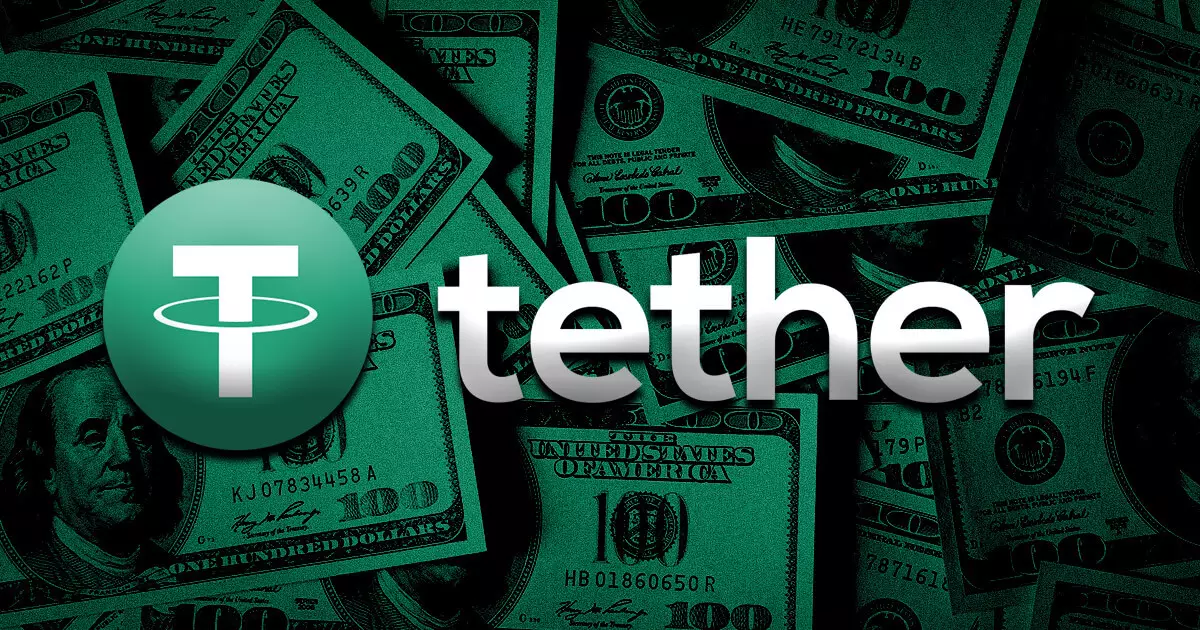The recent actions undertaken by Tether, the world’s largest stablecoin issuer, have sparked discussions and raised concerns regarding the use of stablecoins for illicit activities. Tether recently froze 326 wallets containing $435 million worth of USDT in cooperation with various law enforcement authorities, including the U.S. Department of Justice (DOJ), the Federal Bureau of Investigation (FBI), and the Secret Service. This move is part of Tether’s commitment to combating money laundering, terrorist financing, and other illicit activities associated with stablecoins.
A Preventative Measure
Tether’s initiative to freeze wallets is a significant step towards ensuring the responsible use of stablecoins in the financial system. The company implemented a “wallet-freezing policy” on December 1, which involves freezing all wallets listed on the Office of Foreign Assets Control’s (OFAC) Specially Designated Nationals (SDN) list. By expanding their sanctions controls to the secondary market, Tether aims to set a precedent in the industry and demonstrate its commitment to vigilance and foresight in preventing illicit use of stablecoins.
In their effort to combat illicit activities, Tether has actively embraced regulatory requirements and collaborated with various authorities. Tether’s Know Your Customer (KYC) and anti-money laundering (AML) program is designed to be on par with those found at sophisticated financial institutions. The company’s program underwent a Title 31 examination conducted by the Internal Revenue Service (IRS) on behalf of the Financial Crimes Enforcement Network (FinCEN).
To enhance due diligence and background checks, Tether collaborates with third-party services like Chainalysis and WorldCheck. These services help to ensure that potential and existing customers are thoroughly vetted and comply with regulatory standards. By utilizing Chainalysis’ Reactor Tool, Tether can monitor transactions and identify high-risk or suspicious activity, such as transactions involving mixers or sanctioned wallets, and take appropriate action.
Tether’s commitment to combating illicit use of stablecoins is further demonstrated by its collaboration with law enforcement agencies and ongoing investigations. The company has worked closely with 19 jurisdictions globally, providing assistance and offering information to authorities. Tether’s collaboration with Israel’s anti-terrorist financing agency, the NBCTF, in identifying and freezing wallets associated with terrorist organizations, showcases the company’s determination to prevent illicit use of USDT.
Furthermore, Tether has frozen 800 million USDT in secondary market addresses, most of which were associated with hacks and thefts. The company has also responded to 68 different requests from the DOJ, freezing 188 wallets containing 70 million USDT. Tether’s proactive stance in aiding law enforcement agencies in thwarting bad actors and aiding victims’ recovery highlights their commitment to maintaining the integrity of the stablecoin market.
A Vision for the Future
Tether aspires to be a “world-class partner” to the United States in expanding the global reach of dollar hegemony. By demonstrating their commitment to responsible use and proactive measures, Tether aims to solidify its position as a trusted stablecoin issuer. The company has already onboarded the Secret Service and is actively working towards onboarding the FBI onto its platform. Tether’s dedication to building strong relationships with law enforcement and regulatory bodies is an essential aspect of their vision for the future.
Tether’s recent actions in freezing wallets associated with illicit activities represent a significant step towards combating money laundering, terrorist financing, and other illicit activities facilitated through stablecoins. By implementing a wallet-freezing policy and collaborating with law enforcement agencies, Tether is actively working to ensure the responsible use of stablecoins. As the stablecoin market continues to evolve, Tether’s commitment to regulatory compliance, vigilance, and collaboration serves as a model for others in the industry.

